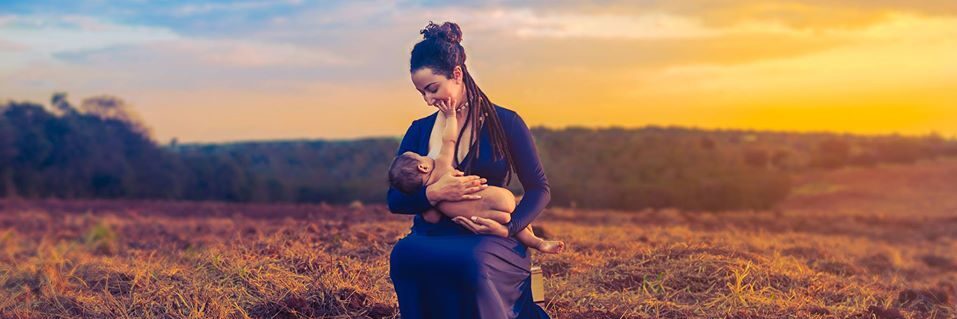Today I add in a beautiful book entitled Swallow’s Nest, a prayer-book of psalms re-written in feminine terms. The author’s favorite term for God is El Shaddai, sometimes thought to have meant Breasted One. My husband inscribed my Divine Feminine Version of the New Testament with these words: “For Susan, my love, May this text allow and encourage you to suckle more deeply at the breasts of God!”
I am using mine several times a day to soothe and feed my fourteen month old baby. My breastfeeding does not feel powerful, though it is. It does feel sacred. It feels private, holy, intimate, like worship. Interestingly, I find it hard to worship in public sometimes the same way I find it hard to breastfeed in public sometimes.
So what about El Shaddai’s power? Besides the more typical notions of power, She has power to nurture, to mature, and to protect. To love, to comfort. But is this true power?
All-Powerful to Do Good
My 9-year-old son, Marshall, often tells me just what he thinks. (I have been known for this at times in my life, as well). Marshall is an Asper-kid and that’s often one of the strengths of Asperger’s—direct honesty.
My husband, Joel, has a compressed disc and has been laid out in the bed a lot. Marshall has blamed Joel for this. Underneath the blame was fear, I thought.
“Do you see mom and dad as all-powerful, sweetie?” I asked. “Is it hard to see Dad vulnerable?”
He said, “I see Mom as all-powerful to do good.”
Asper-kids tend to think in black and white/all or nothing categories, too. So Dad was just out of luck in that conversation. But Marshall’s remark about me as mom astounded and encouraged me. I didn’t think I was doing so well lately, and he has told me so. Yet, the power to nurture and protect, comfort and love is all-encompassing as the “power to do good.”
Mister Rogers said, “When I was a boy I used to think that strong meant having big muscles, great physical power; but the longer I live, the more I realize that real strength has much more to do with what is not seen. Real strength has to do with helping others.”
God is Love
My view of power is skewed. Like Mr. Rogers used to, I see it as physical strength, as status, as wealth, even as the ability to destroy, as in a T-Rex or a bulldozer. And also as the power to be heard. With all these powers come masculine pronouns, not feminine ones.
Yet the power of love is the power of God.
Praise El Shaddai, all nations! Exalt God, all peoples!
For great is her steadfast love toward every one!
The faithfulness of El Shaddai endures forever. Alleleuia!
Psalm 117, Swallow’s Nest: A Feminine Reading of the Psalms, p. 5
Stay updated with the latest discoveries and musings on learning to call God Mother (or Mama, or the Woman Upstairs...).




I know it is a long time since you wrote this, but you may be interested in something from even longer ago. When I was doing my MTh research I was initially interested in how children’s images of Mother, Father, and God relate to each other and how they change with age. In a crude investigation (using Osgood’s semantic differential) I found that in primary age children the three start out very close and gradually as time progresses the three move apart (as the children differentiate their images of parents from each other and from God).
I did not look specifically at aspects of power, but would be surprised if primary age children see mother as less powerful than father, perhaps as for Marshall as Dad’s are more often seen resting (in my experience Barbara tended to rest when the children were not around (e.g. at school) the opposite might be true.
Yes, I experience that with my 3 year old in particular. He is all about Mom:
“You’re my savorite!” he often says. (Can’t says his “f”s). It’s easy when one is
the favorite to forget how much power one has, so I have to be on my guard to
remember Jesus’ words about children’s great value and their spiritual strength.
And however children may eventually see their parents in terms of power
differentials in society, mothers continue to be held responsible for the
difficulties children later face as adults. We really are held, and hold ourselves,
to divine standards.